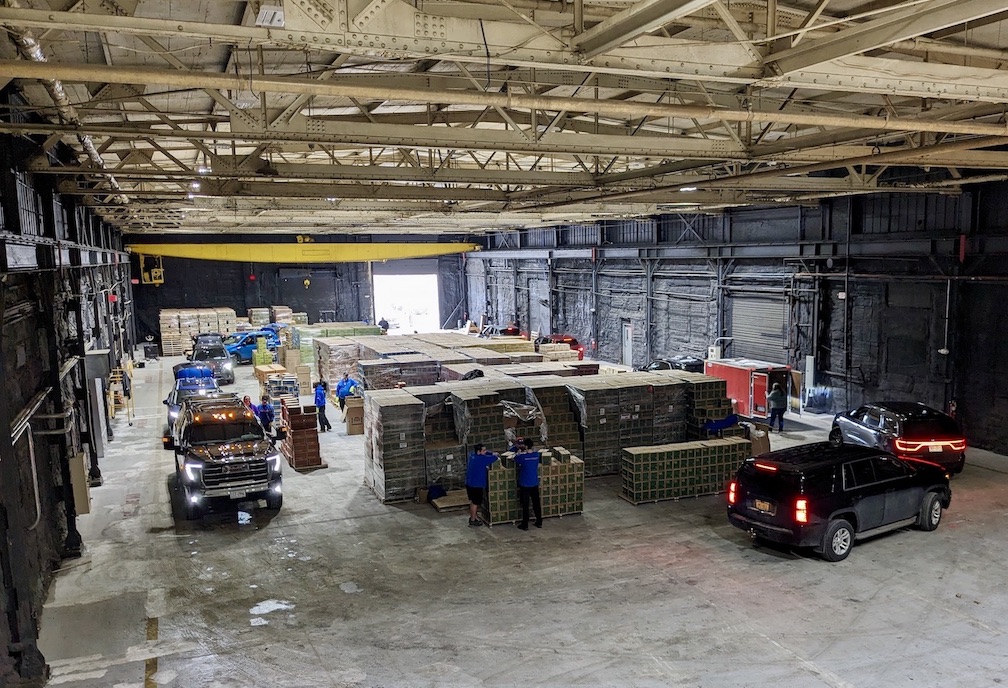Featured News - Current News - Archived News - News Categories
By Lauren Zaepfel
Tribune Editor
New zoning plans for Niagara Falls Boulevard in the Town of Wheatfield may soon come to fruition.
The town may approve the zoning of more property to commercial along the corridor as soon as June, said Drew Reilly, engineer at Wendel representing the town task force, following a work session Monday night.
The current town code states the first 200 feet of most properties along the boulevard are zoned commercial. For property owners whose land expands more than 200 feet, the rear of their parcel is zoned residential, limiting them from expanding their business.
With the newly proposed zoning, the entirety of these properties would be zoned commercial.
"Niagara Falls Boulevard is a very influential corridor in Western New York, and we're trying to set the trend here and say what we want and what we want to see there," Reilly said.
Plans to make more area along the boulevard commercial have been worked on for approximately two years, Reilly said.
"In the time we've been working on it, three people have gotten their properties rezoned, because they got tired of waiting for them to be rezoned," he said.
Reilly said there has already been input from the town's task force and focus group "so now we're ready for the Town Board to begin this process."
Town Supervisor Robert B. Cliffe said the board members plan to set a date for a public hearing at the next Town Board meeting.
Two public information meetings were already held when developing the plan, and Reilly said approximately 50-60 people had attended each.
He said people had minor questions, and one of the main concerns was in regard to mixed-used structures, which include the same building being used as both a business and residence.
"We changed the overlay to allow mixed-use buildings," Reilly said. "So if you wanted to put commercial on one floor and residential on the second floor, we would allow that."
Reilly said mixed-use structures have become a "big trend" along Transit Road, for example.
Reilly said, if expanding back away from the boulevard, commercial property owners would be required to provide a buffer or "screened area to protect residential property owners in the back or adjoining the commercial property."
Also, Cliffe said, with the proposed rezoning, current residences along the boulevard would be grandfathered in and their owners "can make improvements to their homes, they can add things, they can subtract things, they can do minor repairs."
Cliffe said, if a home burns to the ground, the owners would be able to reconstruct the same building. However, if they decided to rebuild a commercial structure, they would not be able to "go backwards" and build residential again.
In other news:
The Town Board agreed to prepare an agreement with property owners on Williams Road to accept and dedicate a private sewer line.
The agreement would help accommodate a possible apartment project on a nearby parcel owned by Calamar.
The apartment building would be required to connect into a public sewer line, but the private sewer line shared by Summit Healthplex and St. Isaac Jogues apartments would be more accessible. Therefore, the company wants to be able to connect its apartments building to the existing line.
"What we wanted to do is build a third building, a companion building, and in order to connect to that same sewer," said Richard Gunn, vice president of development for Calamar. The code changed around 2009 and prohibited multiple private owners to share a sewer, depending on the amount of sewage flowing into a pipe.
Gunn said, in 2015, the 60-unit apartment project was approved. However, "we could not build it, because we didn't have a sewer connection."
The company is now in the process of going back to its partners to secure funding and possibly move forward with pursuing the apartment project.
Summit Healthplex and St. Isaac Jogues apartments are able to operate as two separate owners on the same private line (which was built along with the properties in the early 2000s) because they were grandfathered in, Gunn said.
"So, in a nutshell, if I started these projects today on the same piece of dirt, all three of them, the town would require that I give them the sewer. So I'm doing what actually they would ask me to do today. But their concern is that it's an existing sewer. If the sewer is bad, who's responsible for it? So, what we did to cover that is we have an agreement to pay for our repairs. Most people don't pay for sewer repairs at the street, they only pay for them on their connection to the sewer."
Before the sewer is dedicated to the town, the developer would have to bring the sewer up to code, which may involve checking that the manholes are up to code and inspecting the pipe to ensure there are no issues, "even though, down the road, if there is a problem, they're going to pay for it," Cliffe explained.
Also, if there is an emergency and the town's personnel tend to it, the town would send the company a bill "or if it's something they have time on their hands, they can go out and do it on their own," Cliffe said.
Gunn said, since all three companies will own the sewer, they would divide the cost to pay for any repairs.





























